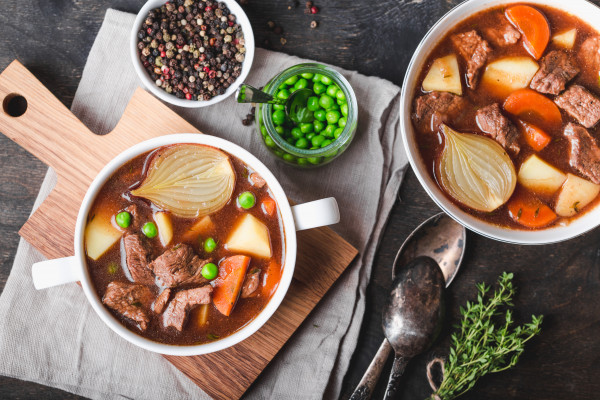
Meeting our nutritional needs throughout the colder months proves difficult, not least due to motivational factors.
But our environment and combined physiology also drives us to crave certain foods above others, often of the unhealthier variety.
Another lesser-known reason that healthy eating can be so difficult in the winter is the lack of sunlight.
As it gets darker earlier, we receive less exposure to the sun, which can lead to a drop in serotonin, the ‘happy’ hormone.
It’s this drop that can cause low mood, risk depression and enhance food cravings.
Nutritional needs can be met with a little awareness, as well as some effective planning and preparation.
Mood boosting nutrition
Vitamin D is a catalyst for serotonin production.
Sunshine is the best natural source of vitamin D, so during a dark winter, you may want to consider a supplement.
But I would always recommend, where possible, dietary intervention above supplementation.
To boost serotonin, in turn elevating mood and mental stimulation, consume a balanced diet rich in healthy, fibre-dense carbohydrates.
These include wholegrains and high-quality carbs such as sweet potatoes, pumpkins and squash.
Manage portion sizes
Over winter, it can be easy to increase the size of your meal portions, often without realising.
I would always recommended opting for a healthy amount of all food groups when constructing meals.
With my clients I utilise a balanced plate method. This constitutes half the meal made up with colourful vegetables/fruit, a quarter using good quality lean protein and a quarter of fibre-dense carbohydrates.
An additional dose of healthy fats should be incorporated such as extra virgin olive oil or full fat milk.
Healthy fibre
Fibre is filling.
Incorporating high-fibre vegetables and grains, beans and pulses in soups, stews, casseroles and bakes are a sure-fire way to seek optimum nutrition, maintain digestive health and achieve fullness without exceeding energy/calorie demands.
Make seasonal choices
During winter, our fruits and vegetable season changes.
To keep costs down and maximise flavours, choose seasonal fruits and vegetables.
Peas, spinach, cauliflower, broccoli, tomatoes as well as citrus fruits and pears, are all seasonal, tasty and in season over winter.
Drink enough water
Requirements for water intake are calculated per kg of body weight but 1.5-2 litres is a good guide.
Air-conditioning and heaters can be dehydrating and it’s important to drink plenty of water for optimum health.
Nutritionist Danielle Wilcock,
Instagram @mindbodynutrition_
















